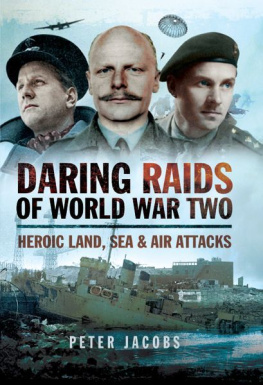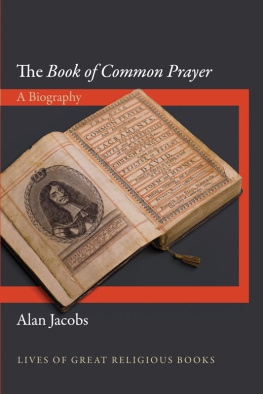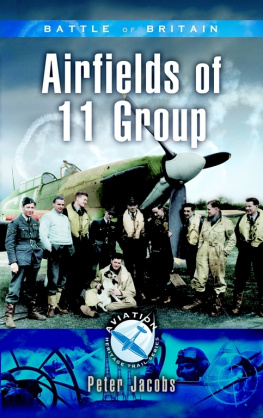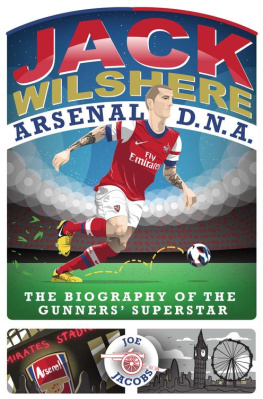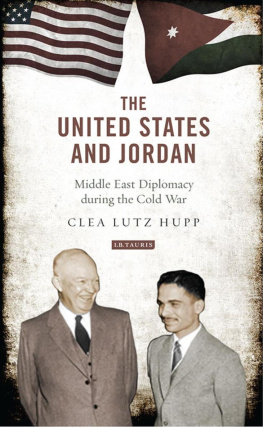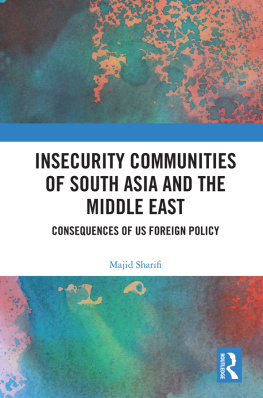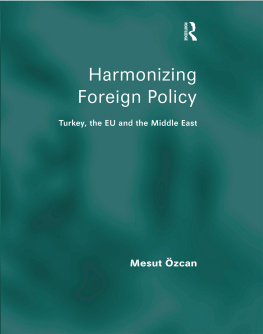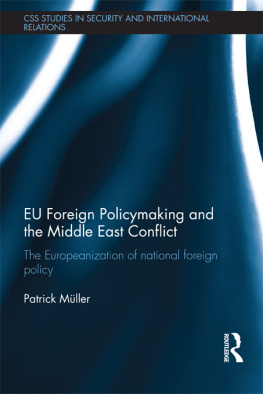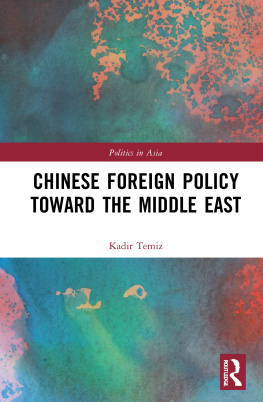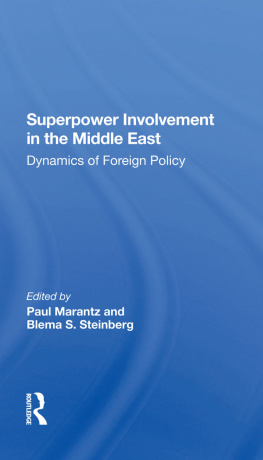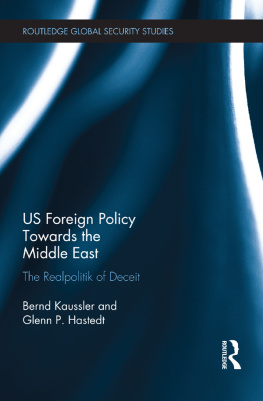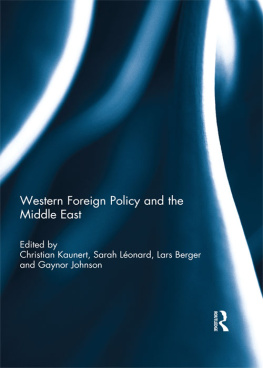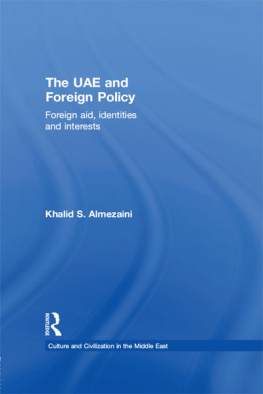Jacobs - Imagining the Middle East: the building of an American foreign policy, 1918-1967
Here you can read online Jacobs - Imagining the Middle East: the building of an American foreign policy, 1918-1967 full text of the book (entire story) in english for free. Download pdf and epub, get meaning, cover and reviews about this ebook. City: Middle East;United States, year: 2014;2011, publisher: The University of North Carolina Press, genre: Politics. Description of the work, (preface) as well as reviews are available. Best literature library LitArk.com created for fans of good reading and offers a wide selection of genres:
Romance novel
Science fiction
Adventure
Detective
Science
History
Home and family
Prose
Art
Politics
Computer
Non-fiction
Religion
Business
Children
Humor
Choose a favorite category and find really read worthwhile books. Enjoy immersion in the world of imagination, feel the emotions of the characters or learn something new for yourself, make an fascinating discovery.

Imagining the Middle East: the building of an American foreign policy, 1918-1967: summary, description and annotation
We offer to read an annotation, description, summary or preface (depends on what the author of the book "Imagining the Middle East: the building of an American foreign policy, 1918-1967" wrote himself). If you haven't found the necessary information about the book — write in the comments, we will try to find it.
Imagining the Middle East: the building of an American foreign policy, 1918-1967 — read online for free the complete book (whole text) full work
Below is the text of the book, divided by pages. System saving the place of the last page read, allows you to conveniently read the book "Imagining the Middle East: the building of an American foreign policy, 1918-1967" online for free, without having to search again every time where you left off. Put a bookmark, and you can go to the page where you finished reading at any time.
Font size:
Interval:
Bookmark:
THE MIDDLE EAST
2011 The University of North Carolina Press
All rights reserved
Designed by Courtney Leigh Baker and set in Quadraat and Univers by Tseng Information Systems, Inc. Manufactured in the United States of America. The paper in this book meets the guidelines for permanence and durability of the Committee on Production Guidelines for Book Longevity of the Council on Library Resources. The University of North Carolina Press has been a member of the Green Press Initiative since 2003.
Library of Congress Cataloging-in-Publication Data
Jacobs, Matthew F.
Imagining the Middle East : the building of an American foreign policy, 19181967/
Matthew F. Jacobs.
p. cm.
Includes bibliographical references and index.
ISBN 978-0-8078-3488-6 (cloth : alk. paper)
1. Middle EastForeign relationsUnited States. 2. United StatesForeign
relationsMiddle East. 3. Middle EastForeign relations20th century. 4. United
StatesForeign relations20th century. 5. Middle EastPolitics and government
20th century. 6. Islam and politicsMiddle East. 7. Arab-Israeli conflict. I. Title.
DS63.2.U5J34 2011
327.7305609'041dc22
2011006662
A portion of this book was published, in somewhat different form, as The Perils and Promise of Islam: The United States and the Muslim Middle East in the Early Cold War, Diplomatic History 30, no. 4 (September 2006): 70539. Used with permission.
15 14 13 12 11 5 4 3 2 1
To Jessica, Ally, and Jeremy
Far more people contributed to this book than I can possibly thank in the lines that follow. Nonetheless, the place to begin is with those who provide the resourcesboth financial and archivalthat make our work as scholars possible. Over the years, I have benefitted from the generous support of the Eisenhower World Affairs Institute, the Lyndon Baines Johnson Foundation, the Graduate School of the University of North Carolina at Chapel Hill, and the Humanities Scholarship Enhancement Fund from the College of Liberal Arts and Sciences at the University of Florida. I would not have been able to complete the project without their support, for which I am truly grateful. I also have been fortunate to work with outstanding archivists at the Truman, Eisenhower, Kennedy, and Johnson Presidential Libraries, as well as the National Archives in College Park, Maryland, the Middle East Institute in Washington, D.C., the Council on Foreign Relations in New York City, and the Seeley G. Mudd Library at Princeton University. I benefitted profoundly from these archivists deep knowledge of their respective collections and their ability to suggest materials that I had no idea existed.
I wish to reserve special thanks for those at the University of North Carolina Press who ushered me and my book through the publication process. Chuck Grenchably supported by Katy OBrien, Beth Lassiter, and Sydney Duprehas been an outstanding editor ever since his initial expression of interest in my work in summer 2008. His faith in me and his careful interventions at crucial moments proved indispensible to the projects successful completion. Paul Betz provided invaluable guidance and oversight as project editor, and I am truly grateful for Jeff Canadays thorough copyediting. Working with each of them has been a real pleasure.
Several individuals have offered insightful advice over the years, either by reading drafts of chapters, commenting on my work at conferences, or participating in conversations about my work. These include Mark Bradley, Nathan Citino, Frank Costigliola, Peter Hahn, Walter Hixson, Paul Kramer, Sheryl Kroen, Douglas Little, Ussama Makdisi, Melani McAlister, Robert McMahon, Joseph Spillane, Michael Tsin, and Salim Yaqub. Of these, I would like to single out Peter Hahn, Doug Little, Melani McAlister, and Salim Yaqub for their more sustained engagement with my work and the many suggestions they have made over several years. I would also like to thank the two reviewers for the University of North Carolina Press, who evaluated the full manuscript on two occasions. Their careful readings made the finished product immeasurably better. Of course, any errors or problems that remain are entirely my responsibility.
As an undergraduate at Cornell University, I had the tremendous good fortune to take multiple classes with Tim Borstelmann and Walter LaFeber. Both are exceptional teachers, though in very different ways, and proved crucial to my decision to pursue a career researching, writing, and teaching about the history of U.S. foreign relations. Walts lectures, seminars, and research acumen still inspire me and set a standard that I continually strive to meet. Tim helped me undertake my first large research project while also proving that it is possible to pursue it alla career, a family, and other passions.
At the University of North Carolina at Chapel Hill, I was part of cohort of Ph.D. students working with Michael Hunt that included Chris Endy and Alan McPherson. Both Alan and Chris are excellent scholars and good friends, and each readily gave assistance and support whenever I asked for it. Sharing the graduate school experience with them was truly a pleasure.
Yet, among all the individuals I have mentioned thus far, none is more responsible for my becoming the historian I am today than Michael Hunt. He taught me how to ask questions and how to look for answers. He taught me that thinking historically is not just a discipline, but a way of life. I am also fairly certain he spent far more time than he wanted to teaching me to write. Michael was an excellent mentor, constantly pushing me to look deeper, to think harder, and to own my work, despite its flaws. He and Paula became my lifelong friends, whom I look forward to reconnecting with every time I return to Chapel Hill.
The history department at the University of Florida has proven to be an exciting and intellectually stimulating place to work. Bill Link has been an exemplary mentor, in both formal and informal ways. He knows the ins and outs of the academic world better than anyone I know, and has provided wise counsel on occasions too numerous to count. Joe Spillane has been both an excellent department chair and friend, reading through some early drafts of material, talking through the project, and protecting my time. Michelle Campos, Nina Caputo, Elizabeth Dale, Mitch Hart, Sheryl Kroen, Jon Sensbach, and Ben Wise are among the many great colleagues and trusted friends with whom I have the pleasure to work, and all allowed me to bend their ears at opportune moments. Former colleagues Fitz Brundage, Fred Corney, Bob McMahon, Michael Tsin, Brian Ward and Bob Zieger all helped me settle into the departmentprofessionally, intellectually, and sociallyduring my early years in Gainesville. Of course, no history department is complete without an excellent administrative staff. In our department, Linda Opper, Erin Smith, and Rutecleia Zarin are among those who make everybody elses work much easier.
Teaching is the most enjoyable aspect of my job, and I have been very fortunate to have a large number of highly engaged students who challenge me. Four in particular stand out. Evan Hentschel took my course on U.S.Middle East relations the first time I offered it many years ago, and his probing questions during class and office hours forced me to rethink not only how I presented some of the material, but also some of the arguments that would ultimately take shape in this book. Roommates Alexia Ash and Anna Prusa must have made whatever apartment complex they called home the smartest in Gainesville, and over the course of several classes, independent studies, and Annas honors thesis, they revealed intellectual interests and senses of humor that were uncannily complementary, and that made teaching them as much of an educational experience for me as it was for them. Finally, and more directly relevant to the subject of this book, Kris Malham was one of many students in my classes who served in Afghanistan or Iraq, or both. Our many conversations in class and office hours, and particularly the three hours we spent going through photographs from his first tour in Iraq, remind me why I believe a book like this one is necessary.
Font size:
Interval:
Bookmark:
Similar books «Imagining the Middle East: the building of an American foreign policy, 1918-1967»
Look at similar books to Imagining the Middle East: the building of an American foreign policy, 1918-1967. We have selected literature similar in name and meaning in the hope of providing readers with more options to find new, interesting, not yet read works.
Discussion, reviews of the book Imagining the Middle East: the building of an American foreign policy, 1918-1967 and just readers' own opinions. Leave your comments, write what you think about the work, its meaning or the main characters. Specify what exactly you liked and what you didn't like, and why you think so.


